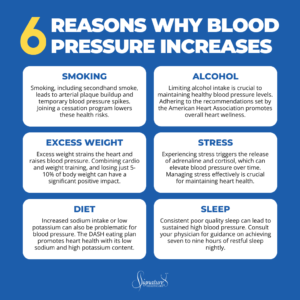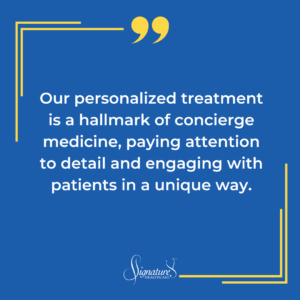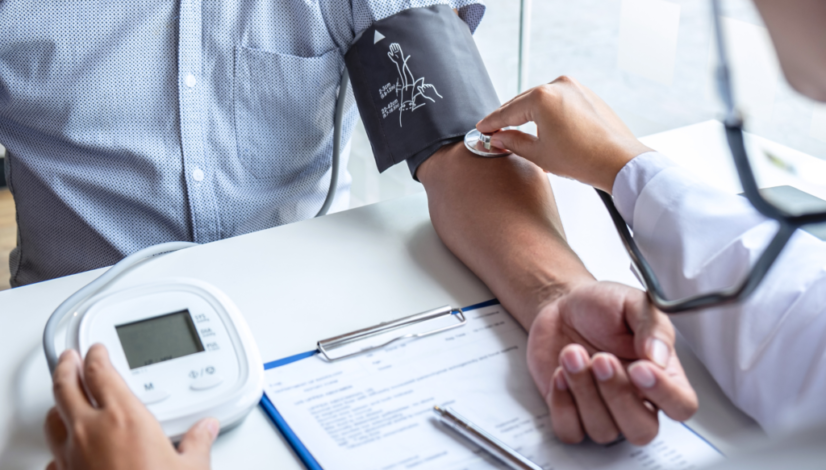How to Lower Diastolic Blood Pressure: Tips From a Physician
Blood pressure measures how forcefully blood flows within your arteries. If you’ve ever had your blood pressure taken (and who hasn’t?), it was likely stated back to you as two numbers — for example, “100 over 70” (100/70).
- That top (systolic) number represents the pressure of your blood when your heart is in systole — that is, when the ventricles contract to push blood out through the body. On average, the heart contracts for about one-third of each cardiac cycle.
- The other two-thirds of the cycle occur between beats, in diastole. The bottom (diastolic) number measures blood pressure when the ventricles are relaxed.
Your diastolic number is particularly important to track because it indicates the pressure your arteries experience most of the time.
So, do you have questions about how to lower diastolic pressure? Read on for some advice.
What Causes a High Diastolic Number?
The American Heart Association advises a blood pressure reading below “120 over 80” (so, 120 systolic/80 diastolic) for the average human heart.
If systolic and diastolic readings consistently measure higher, they threaten your overall health and well-being. Too much pressure within the arteries strains the heart and several organs, including the brain and kidneys.
Imagine, for instance, drinking pleasantly from a water fountain vs. trying to drink from a pressure washer hose. The strength of a pressure washer coming at your brain and kidneys is much more likely to harm than help.
If you’re considering how to lower diastolic blood pressure, here’s something to note: Your systolic and diastolic readings are a package. Whatever impacts one typically also impacts the other.

Why Does Blood Pressure Increase?
Here are six common factors that elevate diastolic (and systolic) blood pressure and a few tips to help manage them. Your concierge doctor can guide you in each of these areas:
Smoking
Smoking and secondhand smoke encourage plaque buildup in the arteries. Every time you smoke, you briefly increase your blood pressure. Consider participating in a smoking cessation program to reduce your risk.
Alcohol
Drinking can also raise blood pressure to unhealthy levels, so it’s never a bad idea to moderate alcohol consumption. Stick to American Heart Association guidelines to encourage heart health.
Excess weight
Extra pounds force an increase in blood pressure, straining the heart. A balanced combination of cardiovascular workouts and weight training effectively reduces unhealthy blood pressure. A loss of even five to 10% of body weight can make a dramatic, positive difference.
Diet
For salt-sensitive people, even small increases in sodium consumption might raise diastolic blood pressure. Low levels of potassium can have similar ill effects. The Dietary Approaches to Stop Hypertension (DASH) eating plan is low in sodium and high in potassium, encouraging heart health.
Stress
When we’re stressed, our bodies respond by secreting adrenaline, the fight-or-flight hormone, and cortisol, which slows functions not needed in fight-or-flight. Exposed to constant stress, these normally helpful hormones can become dysregulated and drive blood pressure up.
A certain amount of stress is a fact of life, but finding healthy ways to manage it — like understanding your triggers or learning to say “no” — can go a long way to help.
Sleep
During normal sleep, your blood pressure goes down. However, for people with regular insomnia or a sleep/wake cycle disrupted by nighttime work and daytime sleep, blood pressure might stay elevated for a longer period.
Talk with your Signature Healthcare physician about how to get a restful seven to nine hours of sleep each night.
The Right Medication Can Help
If you’re wondering how to lower diastolic blood pressure, prescription medication can be helpful. For patients with blood pressure consistently above 140/90, we usually recommend medication to reduce the risk of heart attack and stroke. We may also advise medication for patients with diabetes or certain types of heart disease who have numbers around 135/85.
A few decades ago, people with high blood pressure avoided medications that sometimes made them feel even worse. But today, dozens of well-tolerated, well-proven generic medications are available, including:
- Diuretics (often called “water pills”) target the kidneys and improve the body’s sodium and potassium balance.
- Angiotensin receptor blockers (ARBs) are used to treat hypertension, heart failure, and kidney disease.
- Angiotensin-converting enzyme (ACE) inhibitors relax the arteries and veins to reduce blood pressure.
- Calcium channel blockers decrease pressure by relaxing the walls of arteries.
- Beta blockers cause the heart to beat more slowly and widen veins and arteries, decreasing pressure.
An Approach Tailored to Each Patient
Our concierge physicians carefully determine how to lower diastolic blood pressure by tailoring the prescription to the individual based on several factors, including personal or family health history, lifestyle, and even race.
For example, we know Black patients often don’t respond well to ACE inhibitors, so we’re able to recommend other options. Or, for patients who’ve had a heart attack or angina, we may choose to prescribe a beta blocker. Although not usually needed, we can even suggest pharmacogenomic testing to determine how they metabolize medication.
Our ability to offer such personalized treatment is a hallmark of concierge medicine. We can pay attention to detail and engage with our patients in a way conventional healthcare systems aren’t equipped to.
Signature Healthcare is here to help you “eat good, sleep good, and play good,” as my husband puts it. Still have questions about how to lower diastolic blood pressure? We’ve got answers.


Dr. Elizabeth Perry
Dr. Perry is board-certified in internal medicine, holding a medical degree from the Medical College of Virginia. She completed residencies in internal medicine at the University of Pennsylvania Hospital and in emergency medicine at Johns Hopkins Hospital. Dr. Perry served as the chairperson of the Health Services Committee for the Charlotte Chamber of Commerce in 2006-07 and received the Charlotte Business Journal’s “Women in Business Achievement Award” in 2006. She, her husband Jon, and their three children enjoy outdoor activities and travel.

